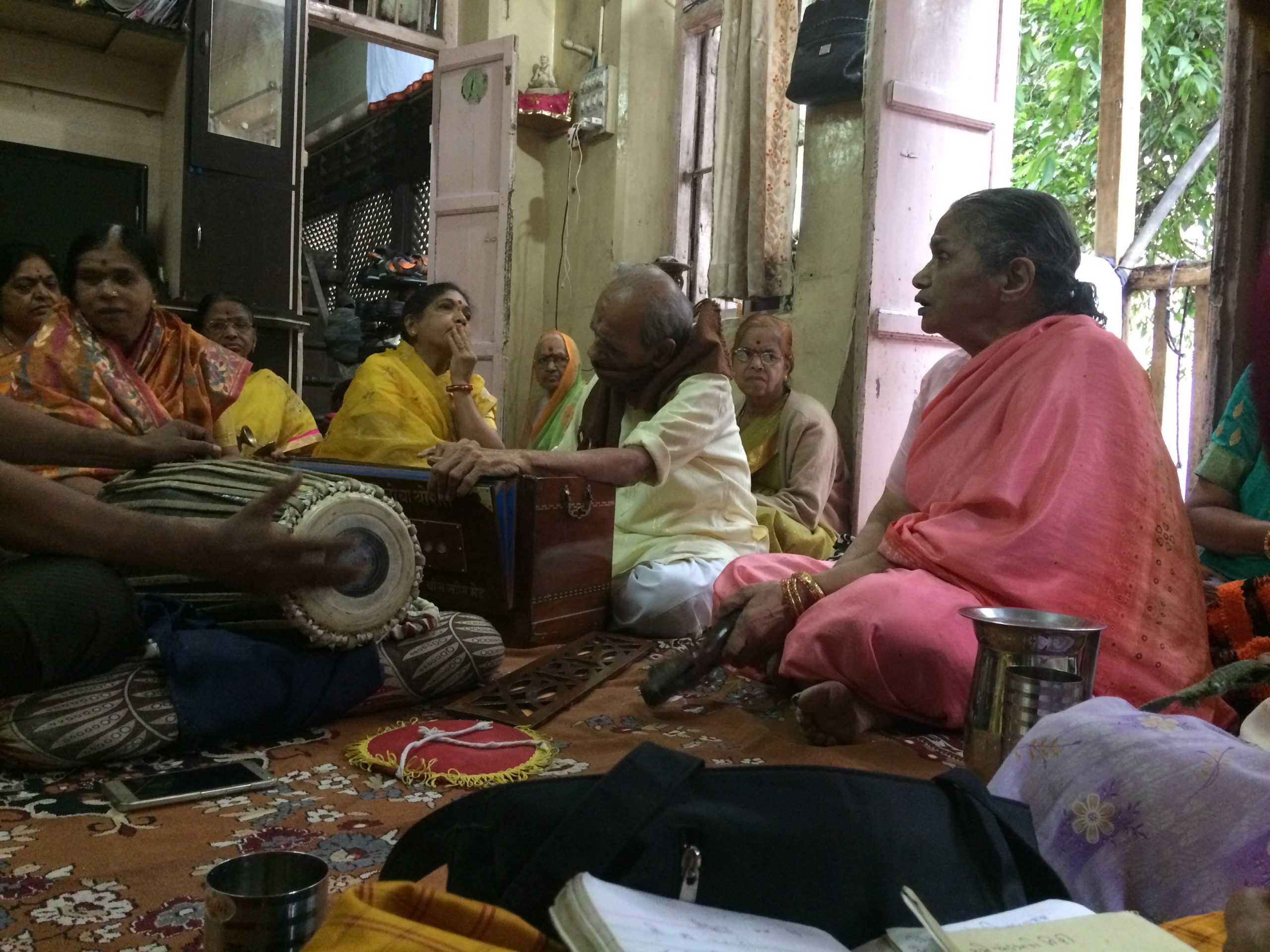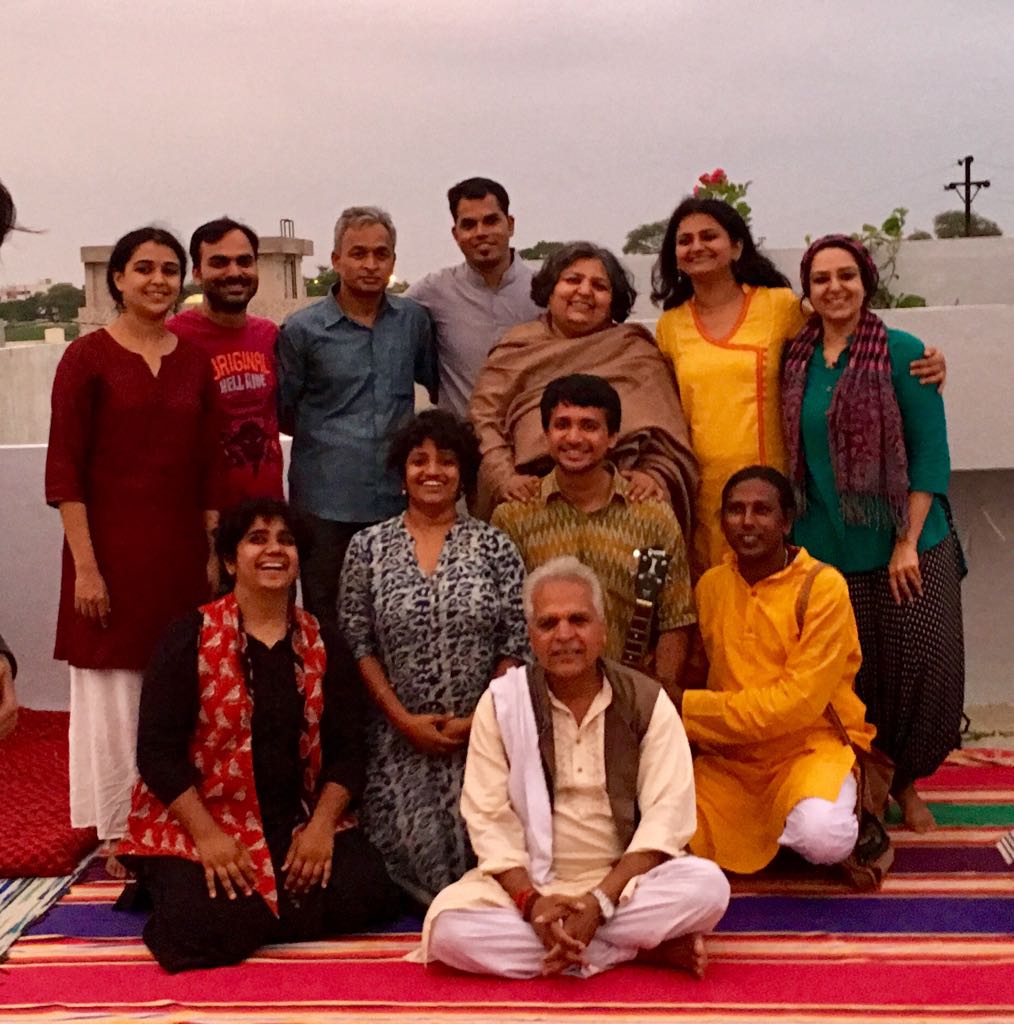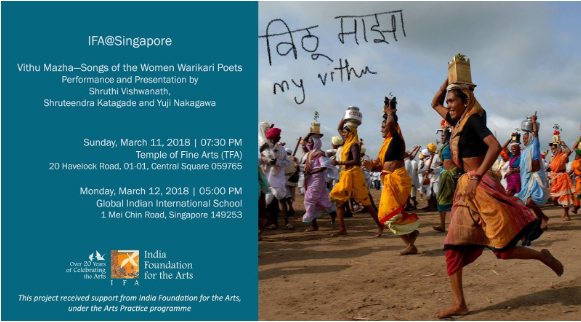My music practice stems from a vast ecosystem of very rich music that I have had the privilege of knowing and being a part of since my childhood. Bringing some of these influences together, repeatedly questioning both form and content, and having a keen lens to bring out lesser known voices has helped me make the music my own.
My Journey

The Beginnings
The music of formative years was primarily Carnatic classical, which I learnt for 2 decades, across Pune, Hyderabad and Chennai from 4 wonderful gurus- my grandmother Krishnaveni Suryanarayan, Rajalakshmi Pichumani, Komanduri Seshadri and B. Krishnamoorthy. Parallely, I also learnt abhangs in a mandali with Vikram Pendharkar, and sang in a choir led by Veronica Krishnayya. I performed my first full length classical concert and age 12, and sang for recordings and dance programs. Formal education took me to BITS Pilani. It was then that I started questioning the notions of classical music and the hierarchies in the system, and whether I wanted to make it my life practice.
Shabad Ki Chot (Wound of the Word):
Kabir says that we are ‘struck by the word’. My moment of being wounded happened when I heard the exponent of nirguni folk in Malwa, Prahlad Singh Tipaniya, singing at a festival in Mumbai. He opened my eyes to the nature of folk music- raw, powerful, visceral, and the deep questioning that the poetry of Kabir brings. I began to realise that a lot of music from my childhood (abhangs, vachanas) was connected as well. I began to explore and sing both Kabir in the Malwi style and the abhangs I had picked up as a child.

“Jo utra so doob gaya, jo dooba so paar”

Finding my own voice:
I had been performing Kabir and Abhangs for a while, when I was introduced to the work of Jacqui Daukes, a researcher who had been working on women’s voices in the warikari sampraday. Jacqui had been asking and answering questions of why women’s songs were disappearing from the oral tradition. I began to question the notions of my practice, and my own commitment to gender and social equality through my music. Jacqui’s translations of 300+ abhangs formed the basis of my work on the women warikaris, which was later supported with a grant from the India Foundation for the Arts. I started composing music extensively, and consciously picked songs that existed in text, but not performance. It is something I continue with a whole host of poets from across the subcontinent.
Journeying both Outside and Within:
My work has now taken me to delightfully varied places – concert halls in Mumbai, villages in Bengal, ghats of Varanasi, universities in the USA. In every place, I try to contextualise the music and poetry to the reality that my listeners are in. I like slow travel, immersing in the place that I go to, meeting musicians from the region, and I absolutely love learning songs from new places! I am grateful for many collaborators and co-conspirators in my journey – Yuji Nakagawa, Shruteendra Katagade, Vedanth Bharadwaj, Sanjukta Wagh, Netai Chandra Das – and many others. Without them, the music would not be what it is.

- To know about my performances and to listen to more, visit Music
- To know about my work in education, visit Teaching
- To get in touch, Contact Me
